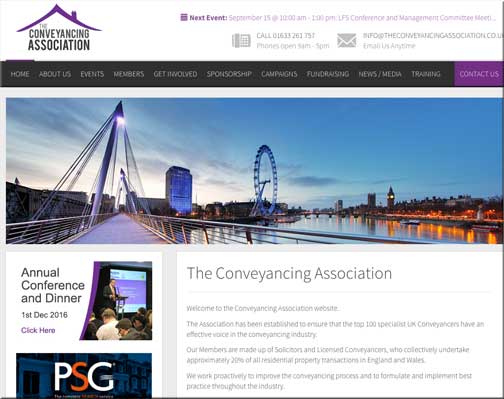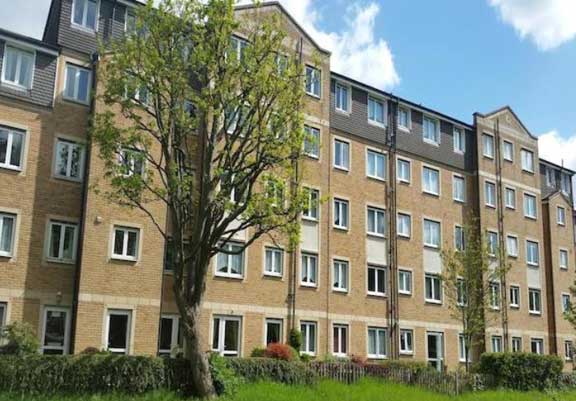… Conveyancing Association calls for enforcement of reasonable fees, and it wants Land Registry to register ‘lease administrators’ who handle sales
… It claims there is ‘an imbalance of bargaining power between the lease administrator and the leaseholder’
… 34 per cent of estate agents say leasehold sales are a ‘nightmare’
… LKP tells the Financial Times’ FTAdvisor publication that freeholders routinely stuff sales as a cash-raising tactic
… Leasehold transactions across all UK regions have risen to 260,000 in 2015 up from 220,000 in 2011 (Source: Land Registry)
… Today 57% of all transactions in Greater London and 40% in the North West are for leasehold properties
 Sales of flats are routinely seen as an opportunity to squeeze ‘extortionate’ amounts of cash out of leaseholders by freeholders, says the Conveyancing Association.
Sales of flats are routinely seen as an opportunity to squeeze ‘extortionate’ amounts of cash out of leaseholders by freeholders, says the Conveyancing Association.
Consumers are inadequately protected as lease administrators handling sales for freeholders are not required to be part of an ombudsman scheme or come under the jurisdiction of the First Tier Tribunal of the property chamber.
The Conveyancing Association calls for the 2002 Commonhold and Leasehold Reform Act be amended to enforce reasonable fees.
There should also be an obligation to provide the data within 20 days of receipt of payment.
The Conveyancing Association statement is published today by the Financial Times’s FTAdvisor
It quotes Sebastian O’Kelly, of LKP, congratulating the Conveyancing Association for “highlighting these frustrations”.
“Sadly, many leasehold owners do have disputes with their freeholders, and the matter rests until the flat is about to be sold. Then up pops the freeholder with demands for immediate cash settlement, and if the matter is not resolved the sale falls through,” he stated.
“The powers a freeholder has to scupper a sale is scandalous. They are disproportionate: many freehold owners have a sub five per cent equity stake in a site, compared with the collective values of the leaseholds, yet makes all the decisions.”
The issue is of growing concern as ever more leasehold is being created.
The Conveyancing Association reports leasehold transactions across all UK regions rising to 260,000 in 2015 up from 220,000 in 2011 (Source: Land Registry).
Today, 57% of all transactions in Greater London and 40% in the North West are for leasehold properties.
The Conveyancing Association wants to see a streamlined process taking out the unnecessary delays, and a cut to the “unwarranted” fees charged by many lease administrators – those who administer the terms of the lease.
Conveyancing Association reports that 56% of its member firms believe lease administrators charge unreasonable fees (in over 30% of transactions).
A further 32% of firms said they believe they regularly (16-30% of transactions) charge unreasonable fees.
On top of this, 62% of estate agents – the traditional buffer between the consumer and the process – state that the provision of leasehold sale information causes real issues in the house-moving process, with 34% branding it “an absolute nightmare”.
 Common problems within the process include:
Common problems within the process include:
- Identifying the lease administrator –there is no registration or regulation required and significant delays can be incurred attempting to find the right person/company.
- An imbalance of bargaining power between the lease administrator and the leaseholder – there is currently no requirement for the publication of costs or any control over their extent in relation to receipt of service of notice, deed of covenant, share transfer or certificate of compliance.
- Overcharging: the Conveyancing Association has seen cases where costs levied are up to nine times more than what the conveyancing industry might expect.
- On average lease administrators are charging between £250 per hour and £360 per hour for administrative work, far in excess of what conveyancers and customers might expect.
- There is also often a duplication of costs with leaseholders required to pay multiple parties to complete their LPE1 (Leasehold Property Enquiry) form.
- No redress system is available with no effective consumer rights and no recourse to the ombudsman given its lack of jurisdiction over costs unless the complaint is in respect of a breach of agreement for those costs.
- There can be significant delays in the provision of the LPE1 information and dealing with other requirements post-sale necessary for the registration and protection of the leaseholder’s title. This causes significant distress to a chain of house movers and can cause sales to fall through.
The Conveyancing Association urges the need:
- To reduce delays in the provision of information required in the conveyancing process.
- To enable the delivery of reasonable and proportionate administrative charges, in particular with respect to administrative charges not covered by the Commonhold and Leasehold Reform Act 2002.
- To create a level playing field across Managing Agents, Management Companies and Landlords.
- For relevant parties to provide information in a timely fashion to reduce the delays in the home moving process.
- Specifically, the CA wants to see the following put in place:
An update to the Commonhold and Leasehold Reform Act 2002 to:-
- Update paragraph 1 of Schedule 11 to include all administrative payments to Lease Administrators by any party to be a reasonable fee and these fees should not be duplicated were there are multiple Lease Administrators.
- Include an obligation to provide the data within 20 days of receipt of payment.
- To require any Lease Administrator providing this service to be a member of one of the three existing property ombudsmen schemes.
- To grant jurisdiction to the First Tier Tribunal to hear all cases not resolved by the Ombudsmen.
- Digitisation of Lease Administrators held by HM Land Registry to create a Lease Administrator’s Register
Beth Rudolf, of the Conveyancing Association, commented: “For many people the process of purchasing a leasehold property can be fraught with delay and significant unexpected extra costs that seem arbitrary in the extreme.
“Talk to those who have gone through that process and you will hear an acute sense of frustration that begins with attempting to track down the leasehold administrator, moves on to trying to get the necessary information out of them within a normal timescale, and finally ends with sometimes multiple charges to different parties, often for the same tasks, which in no way reflect the level of work required to deliver that information.
“Given this, and the fact that the number of leasehold transactions continues to grow, the CA believes now is the time for action to take place in order to develop a much fairer system, with transparent and reasonable costs, as well as an obligation to provide the data required within a 20-day timescale.
“The, quite frankly, extortionate costs being levelled by some coupled with a distinct lack of motivation to provide the necessary information means action has to be taken, especially when (by our reckoning) 75% of leaseholders are being charged excessive fees for the work involved – in 2015 this equates to 200,000 cases. If you add in the sellers who have to pay for the LPE1 this number can be upped to 400,000.
“Of course, there are some great lease administrators out there and we are working with their trade associations who are just as frustrated by the rogues. We understand they would like to see all lease administrators under the jurisdiction of the Ombudsmen, just as their members already are, to ensure there is a level playing field and to give guidance as to what reasonable fees and timescales should be.
“We will continue to work with them to provide a platform for the industry to develop solutions to right these wrongs.
“By changing the Commonhold and Leasehold Reform Act 2002 and collating a register of all Lease Administrators we will go a long way towards developing a process which is far fairer and more fit for purpose for what looks likely to be a growing number of transactions within the purchase market.”
For further information on The Conveyancing Association, please visit: www.conveyancingassociation.org.uk
























How is this for another little nasty facing a purchaser of a pre-owned leasehold property?
Suppose for any reason the seller manages to sell with money either owed or disputed with the freeholder/managing agent. It can happen!
The freeholder or managing agent doesn’t lose out (they never do!)
Provided they do not send a service charge demand to the new leaseholder in the name of the leaseholder, then unbelievably it is the new leaseholder that is held responsible for the previous leaseholders debts.
This is because as the law is currently framed, the new leaseholder has in effect purchased a defective lease.
Only when the freeholder/managing agent sends a demand for service charges in the name of the new freeholder is the obligation to pay the debts of the previous freeholder discharged.
So many have fallen in to this trap and are often fobbed off by freeholders/managing agents who tell them “Don’t worry about not receiving a service charge demand, it is simply a matter of getting the paperwork sorted” All the time the freeholder/managing agent knows the innocent leaseholder is racking up huge debts, knows that they are going to threaten forfeiture of lease if they do not pay up and knows the majority of leaseholders will be so scared they will pay.
Surely, it must be up to the buyer’s solicitors to ensure (a) that service charges and ground rent are paid to
date of transfer and (b) that there is no outstanding breach of covenant.
When I was buying my leasehold flat from a much more reputable landlord, they wanted every buyer to enter
into a Deed of Covenant obliging him/her to perform the covenants in the lease and pay all charges etc, and I
managed to get an amendment written in that I would not be liable for any breaches after I had parted with my interest in the flat.
ME is correct. I have seen the paperwork from someone who asked for my help. At time of purchase ne leaseholde, via solicitor, was told no outstanding serv charges. Six months later man agent says there is one month outstanding from prev leaseholder, but he has died. MA says debt did not originally come to light “as they were so far behind with their accounts”!!!
They have hounded and threatened new leaseholder that bad she has just paid it, £300, to just get on with her last few years in peace, hopefully